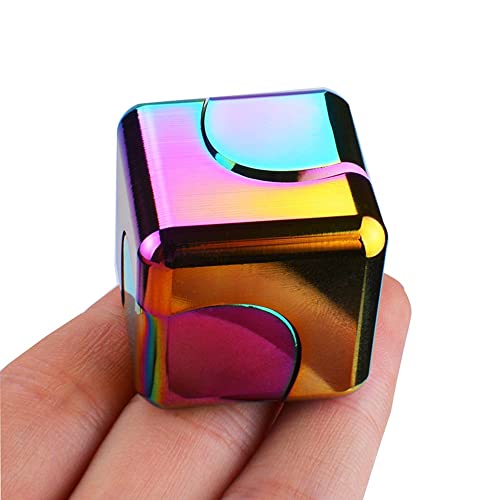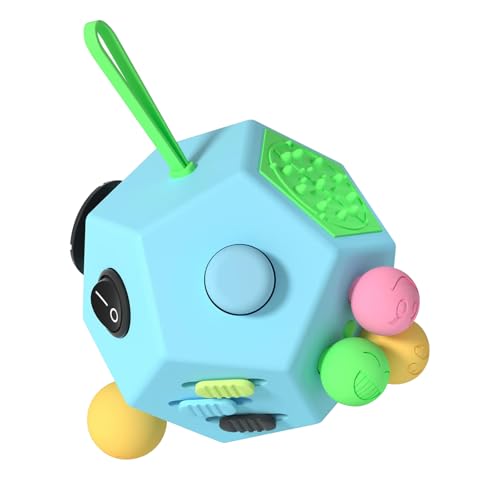If you live with misophonia and/or misokinesia, these tips can help you cope with the anxiety, pain, and stress that repetitive sounds and movements can trigger.
Once you discover the words “misophonia” and “misokinesia,” the first step is to understand what you have and put a name to what you are going through. The second step is trying to find ways to stop suffering, to stop being triggered by repetitive sounds and/or repetitive visual stimuli. After doing some research, you may come to the bitter understanding that there is no cure, no medication you can take that can stop you from having misophonia and/or misokinesia. I was this person. It took a disastrous toll. But after years of living with misophonia and misokinesia, I developed some insights that helped me be more at ease, hopeful, and happier overall. I would like to share them with you, hoping they can help you at least a little. Here are my 11 strategies for coping with misophonia and misokinesia.
1. Understand your misophonia and/or misokinesia triggers.
When you are struggling with something but don't know what it is, it is really hard to process it, to process the pain. I remember trying so hard to push back what I was feeling physically and emotionally since I didn't know what was happening.
Picture it: you are with friends, it is a nice afternoon and then someone in the group is biting their nails and the sound and/or the visual of it triggers something in your body. But it seems that you are the only one affected by it; everyone else is having a good time. By the end of the day, you are tired, hurt, sad, and/or angry, and you don't know why.
It is important to know what misophonia and misokinesia are, not only their name and their definition but to take time to inform yourselves about them. It is also important to understand the impact they have on you and determine your triggers. Not everyone has the same triggers or the same level of difficulty with their misophonia and misokinesia triggers.
When you know more about it and about yourself, then you can inform others. The knowledge is important in order to understand that what you are feeling is normal, valid, and legitimate. Misophonia and misokinesia don't just go away, and there is no point trying to act as if that sound or visual doesn't trigger you. Understanding will not stop the visual or sound trigger, but it will prevent you from going into a downward spiral of shame and self-anger.
When I thought I was the problem, the amount of guilt and shame I was feeling put more pain and difficulty to process the exposure. It adds deep negative feelings to an already difficult situation. It made me depressed and aggravated the situation.
Also, if I think I need to keep it to myself, then I can't do one necessary action that is definitely on this list:
2. Talk about your misophonia and misokinesia triggers, ask people to stop, and don't wait to ask.
Because of the shame, I was not asking people to respect my boundaries. There is something that a lot of people with misophonia and misokinesia share: when we talk about it, people expect us to stop being triggered, stop being affected. They don't view misophonia and misokinesia as a real disorder, as a real thing. But it is a real thing and it can't be stopped. So it has shaped the limits of my boundaries.
You don't know how the person will react to your request. You don't know if the person you are asking to stop doing these visual or auditory stimuli will stop, will stop then do it again, laugh at you, or be angry at you…
However, it doesn't change the fact that you have every right to ask.
I am aware of how difficult it is to ask and to explain why you are asking. I feel really vulnerable during these moments, scared that the person will use this information to laugh at me or will start doing it on purpose. But sometimes, the person is receptive to the request and the explanation, and then they stop or they make less repetitive sounds or movements. And it helps.
Another point regarding asking someone to stop is: it is important to ask as soon as possible. The longer we wait, the more the feelings grow.
3. Focus on your own noises and movements.
Because we are so focused on everyone else's noises and movements, I think we often forget that we as well can produce our own. When I am in the office and someone is triggering me, I try to focus more on the noise the keyboard makes, sometimes typing a little harder so it is easier for me to focus on the keyboard sounds. I move my feet and visualize the movement they make. I jiggle my fingers or twist my hair. The idea is to shift the focus from the sounds and movements of other people to my own.
4. Leave the situation that is causing your misophonia and/or misokinesia.
When I am exposed to misophonia and/or misokinesia, I often think that I have to stick with it, to go through it. Why? Because if the noise and/or the visual stimuli weren't there, that is what I would do. The idea of me changing what I wanted to do, delaying it or even stopping it brings anger, shame, and sadness. After all, why do I have to alter my day, my plans, or my wanting to enjoy the moment? Why do I have to do it because someone else can't stop doing this or that trigger? That is the thought process this kind of situation brings.
However, when I try to stick with it, it doesn't work. I wanted to enjoy the moment at the café but someone was chewing loudly, but if I stay, I will be angrier, more tired, and more hurt. All these emotions and feelings just grow bigger. I just want to leave or the person to leave.
I think it is important to understand that leaving the situation is not an act of failure. It is not giving up or losing the fight, because in the end, I am just fighting myself.
Of course, it is really sad to not be able to enjoy something, or concentrate on something, or want to do something and be unable to do it. But we live with misophonia and misokinesia; it is a part of us. Leaving a situation (when we can, of course) in order to protect ourselves is self-care.
Obviously, leaving the situation all the time doesn't work because, like a phobia, if you never face it or always flee it, it will become harder when you can't flee. We have to live with that, but sometimes, we have to choose our battles and accept that it is too much.
5. Take breaks from overwhelming sounds and situations.
Let me take an example. One day, I had a 3-hour meeting in a relatively small room with a lot of people. Some of them (including the one sitting next to me) were chewing gum. It was awful and I could barely understand the meeting. I had a huge headache and my body wanted to leave the room so badly.
So, I did. I said I needed to go to the bathroom and I stayed in there for more than 15 minutes. Of course, I had to go back. But during this time, I did a breathing exercise and tried to focus on myself. And it helped. It broke the circle of me spinning in endless pain, waiting for the meeting to be over.
When I work, I take a lot of breaks so I can put distance between myself and all the noises, visual stimuli, and people. It helps me recharge my batteries so I can go back to the space with more energy.
6. Find your own place or moment to rest and cope with misophonia triggers.
Do you have a park near the place you live? Is there a moment during the day when you know you are able to enjoy peace? When I was living in an awful place with a loud, selfish neighbor, it was from 8 AM to 9 AM. My neighbor was usually silent during this time. So I took this time to enjoy my coffee in the blissful silence. When my neighbor put on her loud music later in the day, it was very difficult, of course. But I held close to the moment where it was me and the silence. I took energy from it.
I took this moment to remember and understand that the time of being triggered was temporary but also that my life was not always filled with misophonia and misokinesia triggers; to remember that moments without pain are possible.
7. Ask for accommodations to manage misophonia and/or misokinesia.
At school or at work, ask if you can change seats if you need to.
A relative is eating loudly? Ask or try to eat before or after this relative.
I know that it is really difficult and your requests can meet with strong refusal. I went through that, I know. But sometimes, it works. Even though people can and will say no, we have the right to ask.
At my current job, my first seat was awful, sitting between two different triggers. I had horrible days. Then, I asked to change seats but to no avail. I insisted and I was able to change seats, without mentioning misophonia and misokinesia. I just offered relevant reasons.
8. Use noise-canceling headphones and white noise to cope with painful and stressful sounds.
Noise-canceling headphones are a must, though not a perfect solution. You can still hear or see the trigger. However, they can help you shift your focus. It is important to take attention away from the trigger, so listening to music, podcasts, or anything else can help your brain shift its focus.
I find white noise and other rain/fire/cozy ambient sounds really helpful. For example, I lived for one month in a place where I could hear my neighbor snoring. It was a huge trigger and it was impossible to fall asleep. The next day was also awful because I was exhausted, and when you are exhausted, everything is more difficult and painful.
I put a rain sound ambiance from YouTube on my computer so I can have another sound besides the snoring filling the room. I also used earphones with white noise directly in my ears. Of course, it is not ideal and I would have slept far better if there was no trigger at all. But it helped with two things.
First, I was doing something, I was trying to improve the situation. I was not in a passive mode anymore but in an active one. It is really important to understand that, during a misophonia/misokinesia exposure, the control is taken from us. We want it to stop but we have no control over it. The situation and the pain are forced upon us. It is really difficult to process that. By doing these two actions so I could sleep, I regained some control over the situation.
Second, I was able to fall asleep. It was less difficult, less painful and I was able to carry on with my day after waking up.
9. Create a Miso Aid Kit for yourself.
It can be a pencil case or whatever container you like. The idea is to put together different things you will like to see, eat, listen to, and touch during and/or after misophonia/misokinesia exposure. It can be a picture of something or someone that will bring calm and comfort, or snacks. I bring a small toy figure to work that I put near the computer and either look at it or hold it in my hand to ground myself.
10. Share these feelings with people who will understand and support you.
The worst is to let all this pain and feelings inside of you, trying to push them far away. It doesn't work and it will only bring deep loneliness and hopelessness. Your neighbor put on loud music the whole afternoon? Talk about it with your friends, let out the anger and the pain. You don't have to pretend that it is OK, or that you don't care. What you feel is normal and it is not a you problem. Write your thoughts and feelings in a notebook. Take a piece of paper and draw. It is important to not leave these feelings inside of you; they will only grow bigger.
If you can afford it, booking an appointment with a psychologist can be helpful. However, it is a cost that not everyone can afford to pay and it can be difficult to find a psychologist to whom you are going to open up about it.
11. Diversify your activities.
At one point, the only way I saw myself was as a body suffering and unable to do anything else. It is important to remember that we are more than our misophonia and misokinesia. Trying new things (discovering new activities, places, books, movies, etc.) is a way to get distance from all these endless exposures. Our brain is not just a door for pain and sounds/visual triggers. Using it for other purposes can help remind us of that.
I spent a lot of time wishing I didn't live with misophonia and misokinesia or wishing that people would stop doing these sounds and movements that can hurt me so much. But the more I fight my reality, the harder it gets. So I have to go with it. These tools are not helping me all the time and I am still triggered on a daily basis. But it helps me with several things: to be more confident, to overcome the exposure, and to not spiral after the exposure. The effects are still there but I do feel that I am stronger against them.
I am much more than my misophonia and misokinesia triggers. And so are you.
Learn More About Autism & Neurodiversity in The Ability Toolbox
- Fidget Toys for Skin Picking, Hair Pulling, and Dermatillomania
- 20 Fidget Blankets for Autism, ADHD, Alzheimer’s, and Sensory Needs
- Understanding Misophonia and Misokinesia: No, We Can’t Just Get Over It
- Autism Acceptance Pins, Stickers, & Accessories – Celebrate Neurodiversity
- Stylish Chewelry – Sensory Chew Jewelry for Adults with Autism & ADHD
Image by doglikehorse via Deposit Photos.
I have ankylosing spondilitis, anxiety, and a lot of determination! I am trying to find my way, my job and what I want to do with my life. I want to share about chronic disease, chronic pain. And also, I want to share awareness about misophonia and misokinesia. I live with these two conditions, it's really challenging.
Dr. Wilson graduated from Rosalind Franklin University of Medicine and Science and completed her residency in Internal Medicine at Advocate Good Shepherd Hospital in Barrington, IL. Dr. Wilson specializes in providing culturally competent and trauma-informed care to patients with physical disabilities. In addition to her private practice, she works as a science communicator, teaching health literacy to middle school and high school students in her local school district.



















